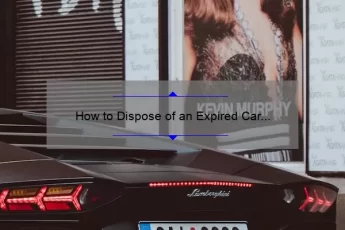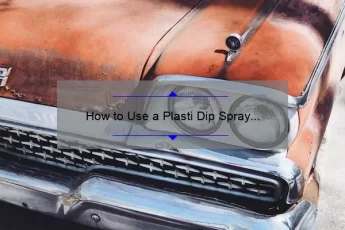Putting E85 into a vehicle that is not equipped for it is a common question, but there are some things to consider before you do so. You need to know the Octane rating of e85, as well as the cost and safety of using it in your vehicle.
Putting e85 in a vehicle not designed for it
E85 is a fuel made from 85% plant-based ethanol, which is cheaper than regular gasoline. However, putting this fuel in a car not designed for it can have a negative impact on its performance. It can cause a check engine light to come on, and could cause engine damage.
While some newer vehicles are compatible with ethanol fuel, older vehicles aren’t. This is because ethanol corrodes components of the fuel system. Some of these parts include aluminium, magnesium, and rubber. So, running E85 in an older car or engine requires a bit of tuning, and you may need to replace some components. It is also recommended that you use a fuel additive like CleanBoost Maxx if you intend to run E85 in a vehicle.
The price of E85 gasoline varies based on the location you live in and the energy market in your area. Generally, E85 gasoline is cheaper than regular gasoline at the pump, but it has lower miles per gallon than conventional fuel. However, flex-fuel vehicles often have higher horsepower and torque than conventional vehicles.
Another problem with putting E85 in a car is that it is harder to pump and is hygroscopic, which means that it attracts moisture from the air. This moisture can damage parts of the fuel system, including injectors and regulators. Because of this, e85 pumps require more frequent maintenance than conventional gas pumps.
Putting e85 in a vehicle designed for it does have benefits. It has higher octane than standard gasoline, which means it can increase compression ratios and increase power. It also reduces inlet air temperatures. Cooler air is denser, which helps the car perform better. It does require a significant amount of tuning, though.
Even though ethanol is a natural fuel, it should only be put in cars that are designed to use it. Some vehicles, including hybrids, are compatible with it, while others are not. You should also check the car’s manufacturer’s warranty before putting e85 in your vehicle.
Octane rating of e85 fuel
The Octane rating of E85 fuel is significantly higher than that of standard gasoline. It ranges between ninety and one hundred percent. By comparison, most premium gasolines only contain 91 or 93 octane. This higher octane content allows for higher boost pressure and better ignition timing, and helps lower the risk of detonation.
But ethanol’s higher octane rating isn’t the only drawback to this fuel. It’s also highly receptive to cold weather humidity, which tends to attract more moisture in the fuel tank. In addition to contributing to rust formation, water in the gas tank can also damage fuel injectors and choke carbureted engines.
While the availability of E85 has increased dramatically in recent years, there are still many places that don’t have reasonable access to it at a traditional fuel station. In particular, it’s difficult to find it in areas with sparse populations. However, if you live in an area with a large population, chances are you can find E85 at a nearby gas station.
E85 fuel may be used in certain types of vehicles, such as cars with “flex fuel” designations. In addition, it is sometimes used in drag racing because it has a higher octane rating than regular gasoline. Car owners may also modify their vehicles’ engines to accommodate the higher ethanol content.
The Octane rating of E85 fuel is an important metric for determining how much E85 is in your fuel. Regular gasoline has an octane rating of 91. E85 fuel has a higher octane rating of 99. Ethanol blends generally have lower mpg, but they are still a viable alternative fuel for some vehicles.
Safety of e85 fuel
The use of E85 fuel in cars poses several safety issues. In cold weather, it can be more difficult to start, and it takes longer for the engine to idle. This can lead to poor performance and high emissions. In addition, the lack of lubricity in the fuel can create additional challenges.
Because E85 contains more than 10 percent ethanol, it can cause problems in cars that do not support flex fuel. It can eat away at seals and cause oil leaks. Even worse, it can be a fire hazard. Therefore, drivers should avoid using E85 in non-flex fuel vehicles.
E85 also has a higher octane rating than gasoline. Its octane level ranges from 100 to 105, which is higher than the 91-93 range for premium gasoline. This higher octane level allows for higher ignition timing and boost pressure, which helps reduce the risk of detonation.
Studies have shown that E85 fuel reduces emissions of CO, NOx, benzene, toluene, and 1,3-butadiene. However, the emissions of E85 are still higher than gasoline, particularly in cold weather and at hot starts. In addition, the fuel has a higher ozone-forming potential than gasoline, though this may vary regionally.
Although many drivers are concerned about the safety of ethanol, it is also important to note that it is also beneficial to the vehicle. In addition to being cheaper than gasoline, E85 also reduces greenhouse gas emissions and can reduce reliance on foreign oil. E85 is produced from corn, and the average price per gallon is less than four dollars, which is 68 cents cheaper than regular unleaded gas.
Another key advantage of E85 is its knock-resistance. This allows turbocharged engines to run with more boost, allowing them to produce more power. For example, a Koenigsegg CCX car produced 806 horsepower using premium gasoline and 1018 horsepower when running on E85. With these benefits, E85 can be a good alternative fuel for tuning cars. The use of E85 in cars is becoming increasingly popular amongst car owners.
However, the use of E85 in cars must be vetted. Vehicles that are not made for it may not be able to run on it well. For example, some OEM flex fuel vehicles may not be made for ethanol. For this reason, some manufacturers advise against using E85, while some may get federal credits for using the fuel.








